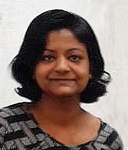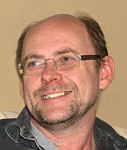Stephanie Denning is an ESRC-funded Human Geography PhD student at the University of Bristol, whose study explores how and why people volunteer in social action/charity work, and how that is inspired by a faith ethos. As part of her research she is running a ‘Lunch Kitchen‘ to respond to school children’s ‘holiday hunger’ – when free school meals are not available in the school holidays some children or their parents will not have enough (nutritional) food. Read more about her theoretical and participatory research project below…

A PhD on faith-based social action? How volunteers are responding to the lack of free school meals in the holidays
I co-ordinate one Lunch Kitchen at a church within an area which is in the top 10 per cent of deprived places in the UK. Children from the local area come for play time and a free hot and healthy meal in the school holidays.
There is no religious requirement for children or volunteers, and no religious content at the club because it is important the project is open to all.
I rely upon volunteers to be able to run the project and to date have had almost 50 volunteers involved. Some cook the food and others run the play time for the children with craft, sports and cooking activities. Without this team of volunteers the club could not happen.
Continue reading


